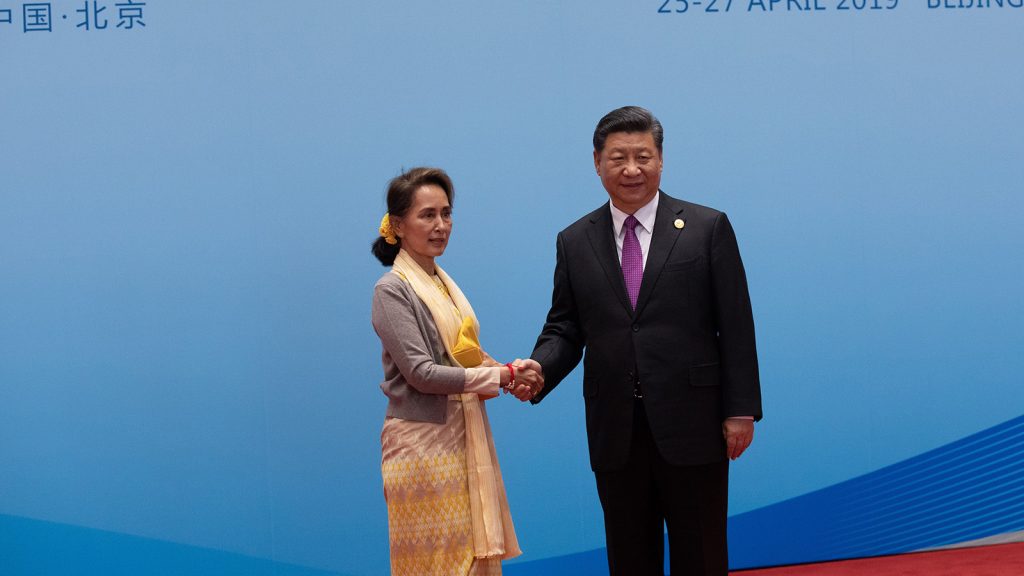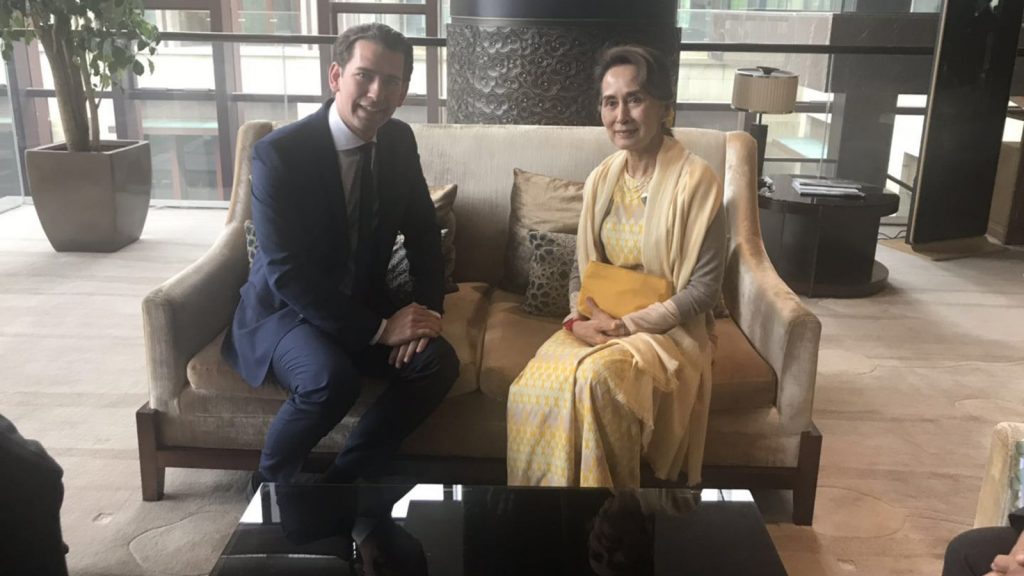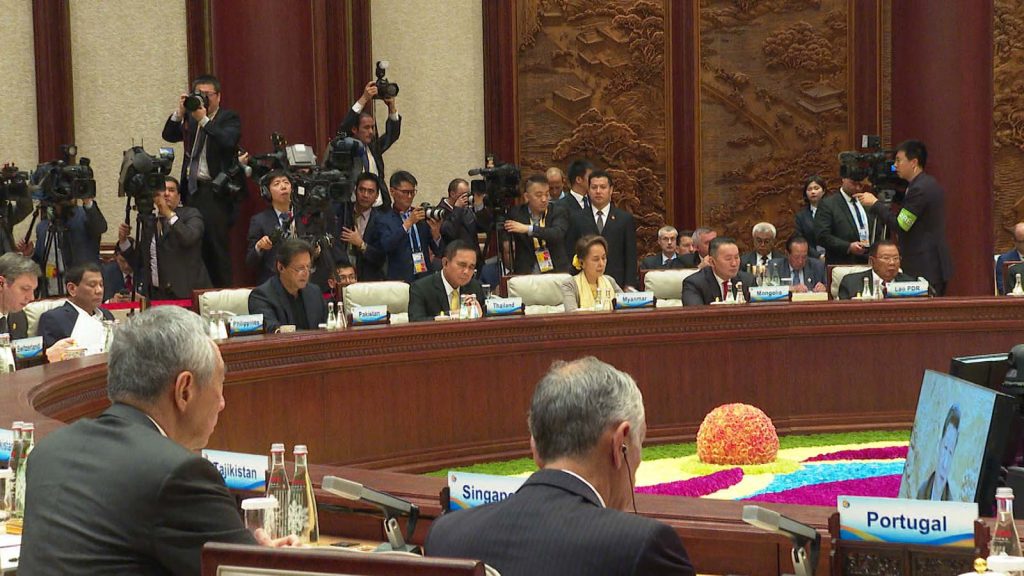28 April
State Counsellor Daw Aung San Suu Kyi participated in the roundtable meeting of the Second Belt and Road Forum for International Cooperation (BRF) in Beijing yesterday.
Upon arrival at the Yanqi Lake International Conference Centre in Beijing, the State Counsellor was welcomed by Chinese President Xi Jinjping.
She took part in the roundtable meeting entitled “Boosting Connectivity to Explore New Sources of Growth” at the Jixian Hall.
Speaking at the meeting, she said Myanmar recognized fully that enhancing connectivity, both hard and soft, would bring more benefits to all Belt and Road partner countries through improved infrastructure and people-to-people linkages.
Facilitating connectivity in regional infrastructure plans and mega-infrastructure projects contributed largely to trade facilitation, economic growth and job creation through flows of goods, services and people, she added.
She continued to say that at the same time, they were aware of possible challenges, such as financial risks embedded in mega infrastructure projects. Comprehensive long-term financial planning, adequate investment funding and a well-equipped regional financial risk early-warning system to foster the development of sustainable and resilient infrastructure within the BRI framework would be crucial.
It was worthwhile to remind ourselves that the maintenance of big infrastructure enterprises was sometimes more challenging than their initial implementation. But some successful mega infrastructure projects could transform a country’s economy and effectively improve the livelihood opportunities of local populations. Developing countries such as Myanmar were in dire need of infrastructure development, she added.
No less than facilities connectivity, People-to-People connectivity contributes to the fostering of sustainable development. In her concluding remarks, the State Counsellor highlighted a few key areas where special attention was required in the interests of enhancing people- to- people connectivity:

– First, in the field of education, especially higher education, we need cooperation and standardization, along with globalization for better quality assurance. This could be promoted through exchanges of ideas and expereinces between peoples and disciplines and we are eager to see more academic exchanges, educational cooperation and scholarship programmes to enhance people-to-people bonds and friendship.
– Second, the field of tourism can also enhance mutual understanding and provide substantial foreign capital inflow and employment opportunities. It can also contribute to greater harmony and peace between diverse societies. We could work together to promote tourism by facilitating tourist safety and security measures, easing visa regulations for tourists, and fostering socially, culturally, and environmentally sustainable tourism.
– Third, cultural exchanges deepen intercultural understanding and bring peoples from far flung regions closer together.
– Fourth, we should keep in mind that the business sector could also play a valuable role in fostering people to people connectivity through social and environmentally responsible enterprises, said the State Counsellor.
In the afternoon, State Counsellor Daw Aung San Suu Kyi attended a roundtable meeting titled “Strengthening Policy Synergy and Building Closer Partnership” held at the Yanqi Hotel.
After the meeting, State Counsellor Daw Aung San Suu Kyi attended the third session of the roundtable meeting titled “Promoting Green and Sustainable Development to Implement the UN 2030 Agenda” at the Yangi Lake International conference Centre.

Also present at the meetings together with the State Counsellor were Union Minister U Kyaw Tin, Ambassador of Myanmar to China U Thit Lin Ohn and officials.
Following the meeting, the State Counsellor met with Austrian Chancellor Mr. Sebastian Kurz at the Yanqi Lake International Conference Centre.
At the meeting, they discussed prospects for promoting cooperation and bilateral cooperation in infrastructure, and technology for the e-Government sector.—MNA


